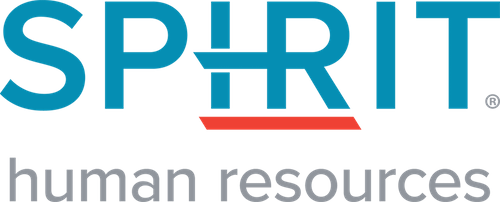Exempt or Non-Exempt

The FLSA requires that most employees in the United States be paid at least the federal minimum wage for all hours worked and overtime pay at time and one-half the regular rate of pay for all hours worked over 40 hours in a workweek.
There are however exemptions from both the minimum wage and overtime pay requirements. To qualify, workers must meet the criteria in specific categories. Let’s look at the most common exemptions.
Executive
- Paid on a salary basis at a rate not less than $455 per week;
- Primary duty must be managing the enterprise, a customarily recognized department or subdivision of the company;
- Must regularly direct the work of at least two or more other full-time employees or their equivalent; and
- Must have the authority to hire or fire other employees, or give suggestions and recommendations as to the hiring, firing, advancement, promotion or any other change of status of other employees must be given particular weight.
Administrative
- Paid on a salary basis at a rate not less than $455 per week;
- Primary duty is the performance of office or non-manual work directly related to the management or general business operations; and
- Primary duty includes the use of discretion and independent judgment with respect to matters of significance.
Professional
- Paid on a salary basis at a rate not less than $455 per week;
- Primary duty is the performance of work requiring advanced knowledge, which is predominantly intellectual in character and includes work requiring the consistent exercise of discretion and judgment;
- As a Learned Professional, the advanced knowledge must be in a field of science or learning, and the advanced knowledge must be customarily acquired by a prolonged course of specialized intellectual instruction. Or, as a Creative Professional the primary duty is the performance of work requiring invention, imagination, originality or talent in a recognized field of artistic or creative endeavor.
Computer-related
- Paid on a salary basis at a rate not less than $455 per week or, on an hourly basis, at a rate not less than $27.63 an hour;
- Must be a computer systems analyst, computer programmer, software engineer or other similarly skilled worker in the computer field performing the duties described below;
- The application of systems analysis techniques and procedures;
- The design, development, documentation, analysis, creation, testing or modification of computer systems or programs;
- The design, documentation, testing, creation or modification of computer programs related to machine operating systems; or
- A combination of the above duties, the performance of which requires the same level of skills.
Outside Sales
- Primary duty must be making sales, or obtaining orders or contracts for services or for the company and will be paid by the client or customer; and
- Must be customarily and regularly engaged away from the employer’s place or places of business.
Highly Compensated Employees
- Performing office or non-manual work and paid total annual compensation of $100,000 or more and regularly perform at least one of the duties of an exempt executive, administrative or professional employee.
Other exemptions may apply to other occupations as defined by the FLSA. Additionally, there are other full and partial exemptions from overtime pay only.
Review Job Duties
As an employer, it is crucial to understand the provisions of each exemption. Do not rely solely on a job title or job description to determine exempt status.
Avoid potential enforcement remedies by carefully reviewing each position to assess the proper classification. If there is a DOL inquiry, actual job duties will be examined to determine compliance.
Remedies to misclassification would entitle an employee to back wages and an equal amount in liquidated damages where minimum wage and overtime violations exist.
Latest Blogs from Spirit HR
Your Quick Guide to E-Verify
The federal E-Verify program has been around in some form since 1996, and it’s only getting bigger. With Florida joining the program earlier this year, around half of all states now require E-Verify participation in some way. Enrolling in the program isn’t difficult,...
3 Reasons to Outsource Your HR
Navigating the complexities of HR management can be a daunting task for businesses, especially when streamlining operations and optimizing costs are crucial for success. Outsourcing your HR functions can be a game-changer, providing the breathing room you need as a...
3 Steps to Improve Health and Safety Compliance in Your Workplace
Health and safety are two terms that can seem tedious concerning the workplace, but ignoring them and the standards they entail could result in injury, illness or even death. Prevention and preparation are integral to a safe, happy and compliant organization. Here are...
